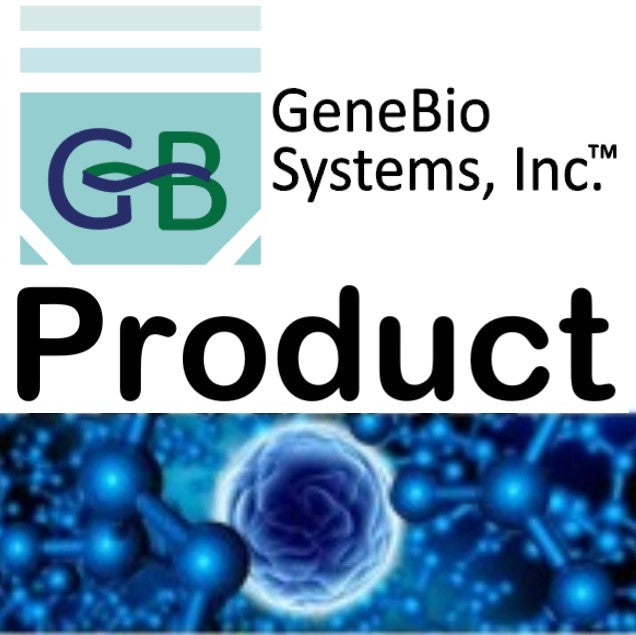Gene Bio Systems
Recombinant Human respiratory syncytial virus A Fusion glycoprotein F0(F),partial
Recombinant Human respiratory syncytial virus A Fusion glycoprotein F0(F),partial
SKU:CSB-EP319265HPWb1
Couldn't load pickup availability
Size: 200ug. Other sizes are also available. Please Inquire.
In Stock: No
Lead time: 10-20 working days
Research Topic: Others
Uniprot ID: P11209
Gene Names: F
Organism: Human respiratory syncytial virus A (strain RSS-2)
AA Sequence: NITEEFYQSTCSAVSKGYLSALRTGWYTSVITIELSNIKENKCNGTDAKVKLIKQELDKYKSAVTELQLLMQSTPATNNRARRELPRFMNYTLNNTKNTNVTLSKKRKRRFLGFLLGVGSAIASGIAVSKVLHLEGEVNKIKSALLSTNKAVVSLSNGVSVLTSKVLDLKNYIDKQLLPIVNKQSCSISNIETVIEFQQKNNRLLEITREFSVNAGVTTPVSTYMLTNSELLSLINDMPITNDQKKLMSNNVQIVRQQSYSIMSIIKEEVLAYVVQLPLYGVIDTPCWKLHTSPLCTTNTKEGSNICLTRTDRGWYCDNAGSVSFFPLAETCKVQSNRVFCDTMNSLTLPSEVNLCNIDIFNPKYDCKIMTSKTDVSSSVITSLGAIVSCYGKTKCTASNKDRGIIKTFSNGCDYVSNKGVDTVSVGNTLYYVNKQEGKSLYVKGEPIINFYDPLVFPSDEFDASISQVNEKINQSLAFIRKSDELLHNVNAGKSTTNIMITT
Expression Region: 27-529aa
Sequence Info: Partial
Source: E.coli
Tag Info: N-terminal 10xHis-tagged and C-terminal Myc-tagged
MW: 60.8 kDa
Alternative Name(s):
Relevance: During virus entry, induces fusion of viral and cellular membranes leading to delivery of the nucleocapsid into the cytoplasm. The fusogenic activity is inactive untill entry into host cell endosome, where a furin-like protease cleaves off a small peptide between F1 and F2. Interacts directly with heparan sulfate and may participate in virus attachment. Furthermore, the F2 subunit was identifed as the major determinant of RSV host cell specificity. Later in infection, proteins F expressed at the plasma membrane of infected cells can mediate fusion with adjacent cells to form syncytia, a cytopathic effect that could lead to tissue necrosis. The fusion protein is also able to trigger p53-dependent apoptosis.
Reference: "Structural characterization of the human respiratory syncytial virus fusion protein core." Zhao X., Singh M., Malashkevich V.N., Kim P.S. Proc. Natl. Acad. Sci. U.S.A. 97:14172-14177(2000)
Purity: Greater than 85% as determined by SDS-PAGE.
Storage Buffer: Tris-based buffer,50% glycerol
Storage: The shelf life is related to many factors, storage state, buffer ingredients, storage temperature and the stability of the protein itself. Generally, the shelf life of liquid form is 6 months at -20℃/-80℃. The shelf life of lyophilized form is 12 months at -20℃/-80℃.
Notes: Repeated freezing and thawing is not recommended. Store working aliquots at 4℃ for up to one week.


